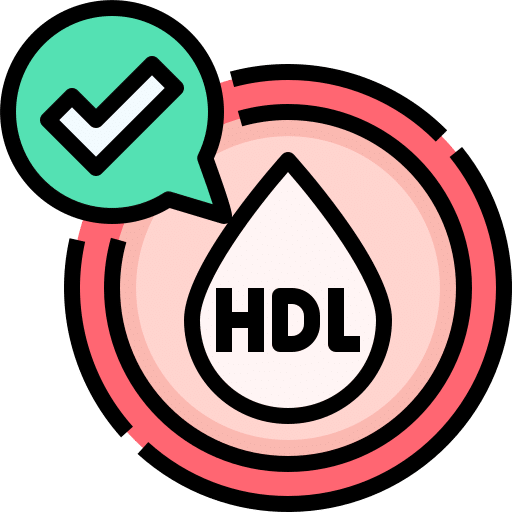
LDL Cholesterol Analyzer

Analyzer Report
Frequently Asked Questions
LDL cholesterol (low-density lipoprotein cholesterol) is a form of cholesterol that is commonly referred to as “bad” cholesterol. LDL cholesterol is a major risk factor for cardiovascular disease, which includes illnesses such as heart attack and stroke.
Low LDL cholesterol levels might show:
● Low risk of getting cardiovascular diseases: Low LDL cholesterol levels suggest a lower chance of developing these problems.
● Improved overall heart health: Low LDL cholesterol levels implies that fatty deposits are less likely to obstruct blood arteries, lowering the risk of heart-related problems.
● Efficient cholesterol metabolism: Low LDL cholesterol levels might be an indication of healthy liver function, which is important in managing cholesterol levels.
● Low LDL cholesterol levels along with normal or high HDL cholesterol and triglyceride levels might suggest a favorable lipid profile, which contributes to overall cardiovascular health.
● High LDL cholesterol levels lead to the development of atherosclerosis, a disease in which fatty deposits accumulate on the walls of arteries, narrowing them and decreasing blood flow.
● Atherosclerosis can cause a variety of cardiovascular problems, including heart attacks, strokes, and peripheral artery disease.
● Diet, heredity, obesity, physical inactivity, and medical diseases such as diabetes and hypothyroidism all contribute to high LDL cholesterol levels.
Cholesterol is a waxy chemical generated by the liver and found in some meals. It is essential for many body activities, including the formation of cell membranes and the production of hormones. High amounts of LDL cholesterol in the blood, on the other hand, can cause plaque buildup in the arteries. This can impede blood flow and raise the risk of cardiovascular issues over time.
It is crucial to highlight that LDL cholesterol is only one component of a total cardiovascular health assessment. Other variables that influence an individual’s chance of getting cardiovascular disease include high blood pressure, smoking, family history, and HDL (high-density lipoprotein) cholesterol levels.
Desirable LDL Cholesterol Range:
● Less than 100 mg/dL (2.59 mmol/L) – Optimal
● 100-129 mg/dL (2.59-3.34 mmol/L) – Near or above optimal
● 130-159 mg/dL (3.37-4.12 mmol/L) – Borderline high
● 160-189 mg/dL (4.15-4.90 mmol/L) – High
● 190 mg/dL (4.90 mmol/L) and above – Very high
Maintaining appropriate LDL cholesterol levels is typically encouraged, and lifestyle changes are frequently suggested to accomplish this aim. Adopting a nutritious diet, frequent physical exercise, weight control, and, in certain situations, medication given by a healthcare practitioner are examples of these. Regular monitoring and consultation with a healthcare practitioner are required for optimal LDL cholesterol management.

























